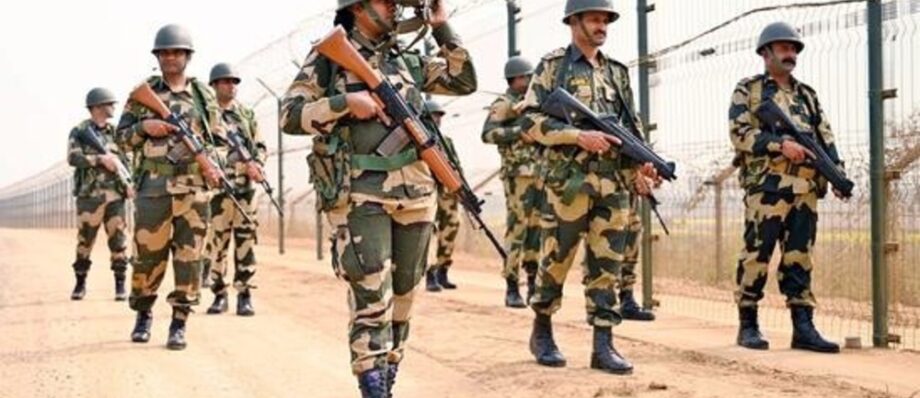West Bengal Assembly Stands Firm Against Pahalgam Terror Attack, Salutes Armed Forces
On June 9, 2025, the West Bengal Assembly convened its monsoon session with a somber yet resolute tone, unanimously passing a resolution condemning the horrific Pahalgam terror attack that claimed 26 lives on April 22 in Kashmir’s Baisaran meadow. The attack, one of the deadliest in the region since the 2019 Pulwama strike, has sparked widespread outrage and renewed focus on counter-terrorism efforts. The Assembly not only denounced the act of violence but also paid tribute to the Indian armed forces for their swift and decisive retaliation, which has been hailed as a strong message against terrorism.
The session began with a moment of silence to honor the victims of the Pahalgam attack, which targeted civilians and security personnel in a picturesque meadow, shattering the region’s fragile peace. According to recent reports, the attack was orchestrated by The Resistance Front, a proxy of the Pakistan-based Lashkar-e-Taiba (LeT), with key plotter Saifullah Kasuri allegedly coordinating from across the border. The Assembly’s resolution described the attack as a “cowardly act aimed at destabilizing India’s sovereignty and communal harmony.” Members across party lines emphasized the need for unity in the face of such threats, with the resolution underscoring that terrorism has no place in a civilized society.
Chief Minister Mamata Banerjee, addressing the Assembly, called for a robust national strategy to combat terrorism. “The pain of Pahalgam is a wound on the nation’s soul,” she said, urging the central government to strengthen border security and intelligence-sharing mechanisms. Her remarks echoed sentiments expressed by other state leaders, who have increasingly called for coordinated efforts to dismantle terrorist networks. The Assembly also highlighted the role of cross-border terrorism, with recent reports pointing to Pakistan’s alleged involvement, including the presence of its military officials at the funeral of a terrorist killed in India’s retaliatory Operation Sindoor.
The Indian armed forces received special commendation for their response to the attack. Operation Sindoor, launched in the aftermath, targeted terrorist hideouts and infrastructure, dealing a significant blow to LeT operatives. Official statements from the Ministry of Defence indicate that the operation neutralized key figures involved in the attack, showcasing India’s zero-tolerance policy toward terrorism. The Assembly’s resolution praised the bravery and precision of the forces, with legislators noting that their actions restored a sense of security among citizens and sent a clear message to adversaries.
The Pahalgam terror attack has also reignited debates on India’s national security framework. Experts argue that while military retaliation is critical, long-term solutions must address the root causes of terrorism, including radicalization and external funding. The Assembly’s discussions touched on the need for enhanced surveillance and community engagement to prevent youth from being lured into extremist ideologies. Several legislators called for greater investment in cybersecurity, given the increasing use of digital platforms by terrorist groups for propaganda and recruitment.
Public sentiment, as reflected in recent posts on X, mirrors the Assembly’s resolve. Citizens across West Bengal and beyond have expressed solidarity with the victims and admiration for the armed forces. However, some voices caution against politicizing the tragedy, pointing to controversial remarks by opposition leaders that have sparked debates. For instance, a Shiv Sena leader’s claim linking the attackers to political affiliations was widely criticized as an insult to the forces’ efforts, highlighting the need for responsible discourse during such crises.
As the West Bengal Assembly concluded its resolution, it reaffirmed its commitment to supporting the central government in strengthening anti-terrorism measures. The session also saw calls for rehabilitation programs for the families affected by the attack, with proposals for financial aid and counseling services. The Assembly’s united front sends a powerful message: India stands undeterred in its fight against terrorism, with West Bengal playing a pivotal role in advocating for peace and security.
The Pahalgam attack serves as a grim reminder of the challenges India faces in maintaining its national security. Yet, the collective resolve of its people, leaders, and armed forces underscores a determination to overcome these threats. As the nation mourns, it also looks forward, with the West Bengal Assembly’s actions reflecting a broader commitment to justice, unity, and resilience in the face of adversity.


